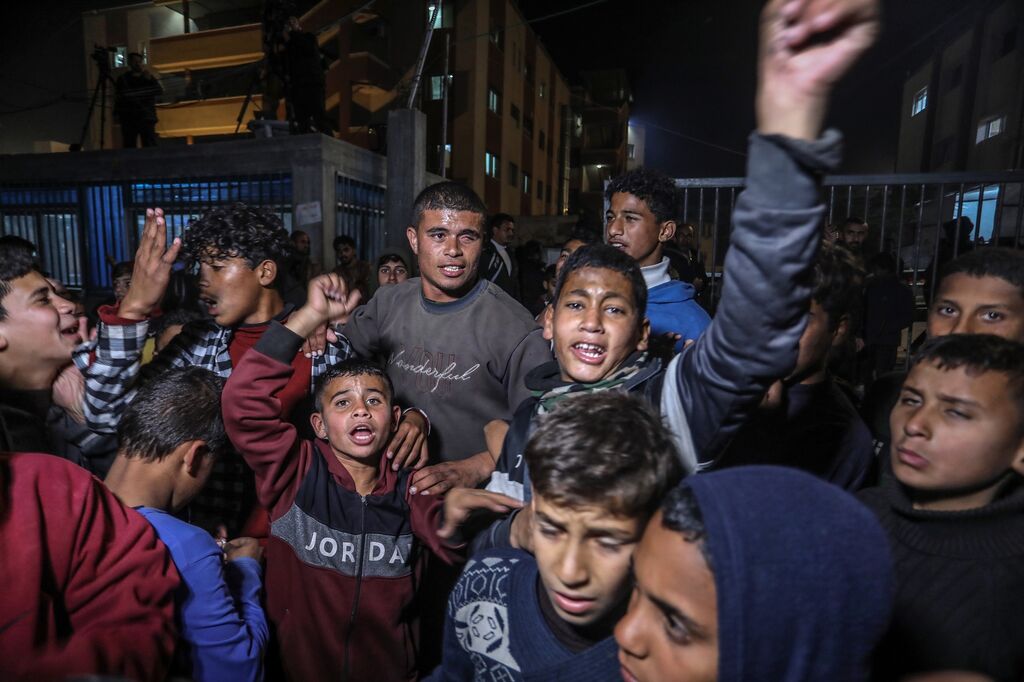How should we feel about the Gaza ceasefire?

The first sign was a hand-written note and a whisper in the ear of the American President. Indirect negotiations between Israel and Palestine had yielded fruit. Donald Trump’s twenty-point plan for peace in the Middle East could be the basis for a serious and lasting end to the conflict in Gaza.
It comes two years and two days after the incident that started the war: Hamas’ devastating attack on 7th October 2023 that killed over a thousand Israelis. As Israel then attacked and invaded the Palestinian territory of Gaza, it has resulted in many thousands more deaths. The war has also led to a humanitarian crisis within Gaza leaving people without food, shelter and clean water.
The situation is still developing at the time of writing, but both Hamas and the Israeli government have agreed to the terms of a ceasefire which has now come into force. This will be accompanied by a withdrawal of Israeli forces from parts of the territory, anticipating an almost full withdrawal in due course. This will then be followed by the release of the hostages by Hamas, some twenty of which are believed to be alive, and release of Palestinian political prisoners by Israel. The return of the hostages could finally come about by early next week.
Things have moved quickly and surprisingly over the past days, and it can leave us uncertain how to feel about where we are right now. Some will react with jubilation and excitement; others will respond with pessimism and cynicism (this is not the first ceasefire to be announced in this war). Then there are those who point out the way Israel has conducted the war, or that Hamas are terrorists. Is all forgiven in the cause of peace? As Christians, how should we feel about these latest developments in the Middle East?
We should be thankful
It does seem as if this is a significant step toward lasting peace in Gaza. For that we should be profoundly thankful.
There have been celebrations in Gaza and in Israel about the news of the ceasefire. Not only will hostilities stop (we hope permanently) but aid will be able to get into Gaza where it is desperately needed. The hostages will be able to return home to their families. There is even the potential for a solution that could allow Israelis and Palestinians to live alongside one another in peace. All of these things should gladden our hearts and give us cause for joy.
Whatever your opinion of him, some thanks would seem to go to Donald Trump (and his team of envoys, advisers and diplomats). He has leveraged key relationships to enable these negotiations to happen and to pave a way for the ceasefire. Prime Minister Keir Starmer has commented that this deal “would not have happened without President Trump’s leadership”. The timing was not right to win Trump his coveted Nobel Peace Prize, but even his critics seem to acknowledge that this is a key achievement for the president.
It is good to recognise the work that politicians, and those who work in politics, do to work towards peace. But our greatest thanks needs to go to God, who rules over the nations (Psalm 22:28) and to whom the kings of this world belong (Psalm 47:9).
The ceasefire in Gaza, along with being an achievement for politicians in various countries, is also a profound answer to prayer. Christians across the world have been praying for a lasting peace and an end to war in the region and we should be thankful to Almighty God for hearing and answering the prayers of his people.
We should be cautious
As Christians we are encouraged to look realistically at the world we live in. As such our thankfulness for the ceasefire should also come with caution.
There is much left to do to secure a lasting peace in Gaza. What has been agreed is a ceasefire, not a complete peace deal, and there will be several stages of negotiation in the weeks to go to reach a peace that will last.
For Israel, the return of the hostages is a key next step. This has not happened yet, although it is anticipated to be done in the days to come. If there were any problems with reuniting the living hostages with their families, or retrieving the bodies of those who have died, then it could derail the peace process.
The Palestinians have questions about the terms of President Trump’s twenty-point plan. They will need to be satisfied with the provisions yet to be agreed on before a permanent peace can be found. Israel have not identified all of the Palestinian prisoners that will be released, which could stall further work towards an agreement.
There are still big questions left to be answered: A non-negotiable point for many in the Israeli government is the disarming of Hamas, which they have not yet agreed to. There is the question of Israeli settlement plans in Gaza, as well as the future role of the Palestinian Authority. There is also the wider question of the possibility of a Palestinian State.
It is good that we have reached this point of a ceasefire, but we are not at the end of the road for the war in Gaza yet. If negotiations break down, the consequences could be painful. President Trump threatened devastation for Hamas if they didn’t come to the table; it remains to be seen how he, and Israel, might react if they walk away from talks.
To the Ephesian church, the apostle Paul writes:
“Be very careful, then, how you live—not as unwise but as wise, making the most of every opportunity, because the days are evil.” (Ephesians 5:15-16)
Paul acknowledges that there are great opportunities for people to live for God in this world, but also that the days are evil. He is not naive, nor is he a cynic. Instead he calls the Christians above all to be wise in the way they live.
As Christians we recognise that every person is made in the image of God, but marred by humanity’s sin. Each person, therefore, has the capacity for doing good and also great sinfulness. We can walk carefully the line between unthinking optimism and undue pessimism, between jubilation and cynicism in the face of events like the ceasefire in Gaza.
We should long for justice
Peace is a good thing, especially in a war-torn region such as Gaza. But does the pursuit of peace mean that issues of justice get buried in order to put an end to fighting?
On one side of this conflict, Hamas is a terrorist organisation. The war began through an act of terrorism that killed over a thousand people. Hamas has stated that they will not put down their arms until there is a viable Palestinian state (which has not been agreed under the current peace plan). The Israeli government find it very difficult to overlook these issues in the path to peace, and we may understand why.
On the other side, there are serious questions about how Israel have conducted their war in Gaza. Initiated by Hamas’ attack, they have subsequently killed more than 46,000 Palestinians over the past two years. Some of Israel’s actions have brought grave criticism from the international community, such as restricting aid to Gaza City. There have been accusations of war crimes on the part of the Israeli forces.
Peace is good and peace ought to be pursued. But peace does not come at the expense of justice. There are complicated and important questions to be asked in the aftermath of this war, and potentially people to be brought to account. We hope, and pray, that this will be part of the peace plan and the international response.
If it is not, we have a God who cares for justice and upholds the cause of the oppressed (Psalm 82:1–4). If justice is passed aside in the path to peace, we know that God will bring about justice and righteousness when Jesus returns. Malachi talks about that day as the ‘sun of righteousness’ rising with healing power (Malachi 4:2). As we await that day we work for justice as much as we are able.
We should be prayerful
Being wise in the way we respond to global events means above all else that we should be prayerful.
The complexities of a situation such as Israel-Gaza means that we can feel powerless. But with access to an Almighty God in prayer means we are never powerless but can always respond in intercession for the state of the world. Psalm 122:6 directs us to “pray for the peace of Jerusalem” while Jeremiah 29:7 directs us to “seek the peace and prosperity of the city to which I have carried you”.
Just as the ceasefire in Gaza is a result of people’s prayers, so we should continue to pray for a lasting peace in the region. As we acknowledge the things still to be done, let us pray for the hearts and minds of both sides to be turned toward peace rather than inward to their own desires or agendas. Let us also pray for justice as well as peace, and that injustices that have been committed will be brought to light rather than hidden during the peace process.
We should also pray for the effect of the war in Gaza on our own country and our own hearts and minds. The attack on a synagogue in Manchester is representative of a rise in anti-semitism here in the UK. Pro-Palestinian protests have sprung up in different parts of the country leading to hundreds of arrests. We need the grace of God to turn our sinful hearts toward peace here at home as much as in the Middle East.
We await further news about the situation in Israel and Gaza. As we watch and wait, we can avoid triumphant jubilation or resigned cynicism. But instead, with prayerful hearts and longing for Jesus’ return, seek the peace of the city, and every city where God has placed us.






